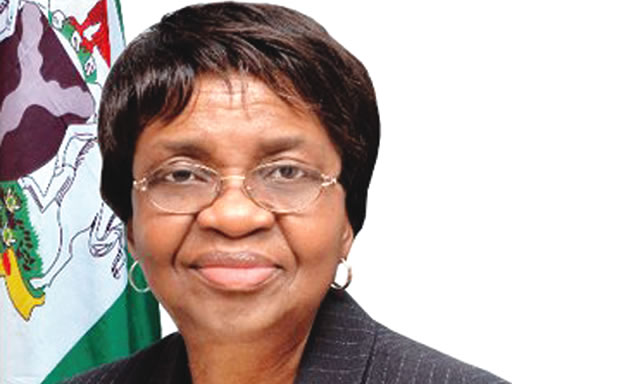This piece makes a compelling case for integrating more women into the energy transition planning process in Nigeria. It also delves into the policies that shape Nigeria’s energy future, while highlighting the unique role women play in the energy sector, particularly at the household level, where their responsibilities intersect with energy use, health, and sustainability; ENE OSHABA writes.
Climate change and gender
In the global quest to mitigate climate change, the transition from fossil fuels to renewable energy has become a priority. For nations like Nigeria, a country heavily dependent on oil revenue, navigating this shift presents both an urgent need and a significant challenge. At the heart of this transition is the Energy Transition Plan (ETP), designed to move Nigeria towards a greener, more sustainable energy future by 2060. However, despite its ambitious objectives, Nigeria’s energy transition strategy risks excluding the very people who will be most affected by it: women.
At the National Consultative Dialogue on Nigeria’s Energy Transition and Renewable Energy Commitments, a key panel discussion was centered on identifying the gaps in the ETP and understanding how the energy transition impacts different demographics, especially women and girls.
Sharon Chiahemen, a climate change activist and the team lead for @GreenWithGrin and an advocate for the intersectionality of climate change, spoke on these critical issues, shedding light on the urgent need for gender-responsive strategies in the ETP.
Nigeria’s energy transition plan: The current landscape
Nigeria’s Energy Transition Plan (ETP), launched in 2022, is a comprehensive framework aimed at achieving net-zero emissions by 2060. It outlines strategies to reduce Nigeria’s carbon footprint, while ensuring equitable energy access to all citizens. According to the plan, Nigeria will need an estimated $23 billion to achieve its objectives, a goal that seems daunting given the nation’s current economic and energy challenges.
Yet, even as Nigeria sets ambitious targets, significant gaps remain in both policy implementation and engagement with key stakeholders. One of the critical issues highlighted during the panel discussion was the lack of grassroots involvement, particularly the absence of women’s voices in the policymaking process.
This is especially concerning when one considers the role women play in energy use in Nigeria. Over 70% of rural households in Nigeria still rely on firewood for cooking, exposing women and children to serious health risks such as respiratory diseases. Furthermore, the gender dynamics of energy usage at the household level are often overlooked in energy policies, leaving women vulnerable to the adverse effects of climate change and energy poverty. Sharon’s comments during the dialogue underscored this issue, particularly the fact that cooking, an activity predominantly carried out by women in rural communities, is one of the largest contributors to greenhouse gas emissions in Nigeria, accounting for 22% of the nation’s total emissions.
The gender blind spot in Nigeria’s energy transition plan
While the ETP is a step in the right direction, it has been criticized for failing to adequately integrate gender considerations into its framework. As Sharon pointed out during the dialogue, Nigeria’s energy challenges are not gender-neutral. Women are the primary energy users in the household, often responsible for cooking, fetching water, and managing other domestic tasks that rely on energy. However, their voices are largely absent in discussions on energy policies and renewable energy solutions. This oversight undermines the effectiveness of the energy transition.
Sharon’s key critique is that Nigeria is focusing on transitioning to renewable energy without stabilizing the existing energy systems. She pointed out that many rural areas lack access to reliable electricity, and the national grid remains unstable.
“The transition is more complex than merely shifting from fossil fuels to renewable energy; it requires building a stable and accessible energy infrastructure first.
“Without addressing these foundational issues, any move toward renewable energy will be ineffective, especially in rural areas where women bear the brunt of energy poverty,” she noted.
She explained that the ETP fails to adequately address the healthimpacts of traditional cooking methods, which disproportionately affect women.
“Many women in rural Nigeria still cook with firewood, which contributes to indoor air pollution and has severe health implications. Cleaner cooking technologies, such as biogas or LPG (liquefied petroleum gas), have the potential to drastically improve the health and productivity of women by reducing their exposure to harmful pollutants. Yet, these technologies remain unaffordable or inaccessible to many women in rural areas.”
Women as key stakeholders in the energy transition
Sharon’s intervention emphasised that women must be at the forefront of energy transition discussions. By recognizing women as central figures in energy consumption, policy design, and job creation, Nigeria can develop a more inclusive and effective energy transition.
“Women’s participation is critical in ensuring that policies address their specific needs and challenges, whether in terms of energy access, affordability, or health,” she said.
In terms of job creation, the transition to renewable energy presents a unique opportunity to engage women in the green economy. As Sharon pointed out, many women may be left out of emerging job opportunities in the renewable energy sector if gender-responsive strategies are not implemented. The renewable energy industry, particularly solar and wind energy, has the potential to create new jobs in installation, maintenance, and entrepreneurship. However, if women are not actively engaged in training and capacity-building programmes, they risk being excluded from these opportunities.
Sharon maintained that, the energy transition presents a unique chance to empower women in leadership positions within the energy sector. She noted that currently, the energy sector in Nigeria is predominantly male-dominated, with few women in decision-making roles, stressing that to create a truly inclusive energy future, policies must prioritize gender equity in the energy sector, offering women the tools, resources, and opportunities to take on leadership roles and contribute meaningfully to energy solutions.
The need for gender-responsive energy policies
To address the gaps in Nigeria’s energy transition plan, gender-responsive energy policies must be implemented. This includes integrating women’s perspectives into the design and implementation of energy projects, ensuring that women benefit from access to clean energy technologies, and creating opportunities for women to participate in the green economy.
For instance, solar mini-grids, which have shown promise in some rural areas, could provide decentralized and affordable energy to communities. However, without a gender-responsive approach that includes women in the design, implementation, and management of these systems, such initiatives may not reach their full potential. Women must be trained and included in the maintenance of solar panels and other renewable energy infrastructure to ensure long-term sustainability.
Additionally, access to finance is a significant barrier for women looking to invest in clean energy technologies. Sharon highlighted that in many rural communities, women are often excluded from financial decisions, and lack access to credit or subsidies to invest in renewable energy solutions. This exclusion further entrenches energy poverty and limits women’s ability to contribute to the energy transition. Financial institutions and government policies must prioritize gender-sensitive financing models that empower women to invest in clean energy technologies.
Achieving just and inclusive energy transition for Nigeria
The integration of women into Nigeria’s energy transition plan is not only a matter of equity, but it is also crucial for the success of the energy transition itself. Women are central to energy use and management at the household level, and their exclusion from the decision-making process undermines the effectiveness of energy policies. By addressing the unique challenges women face in accessing clean energy, and by providing them with the skills and resources to participate in the green economy, Nigeria can ensure a more inclusive and sustainable energy future for all.
The panel called on the Nigerian government to take immediate action to make the energy transition plan more gender-responsive. This includes prioritizing women’s health, promoting access to clean cooking technologies, and ensuring that women have equal opportunities in the emerging renewable energy sector.
As Sharon Chiahemen aptly pointed out, energy is a key driver of other sectors – from health and education to economic development. Therefore, integrating women into the energy transition is not just a matter of gender equality, but a necessary step toward creating a more sustainable and resilient future for Nigeria.
She added that in moving forward, Nigeria must ensure that women are not left behind in the energy transition. This requires closing policy gaps, increasing awareness, and making energy policies more inclusive.
According to her, “Only through a gender-responsive approach can Nigeria achieve a just and equitable energy transition, one that benefits all citizens, irrespective of gender, age, or location.”




 1 day ago
26
1 day ago
26








 English (US) ·
English (US) ·